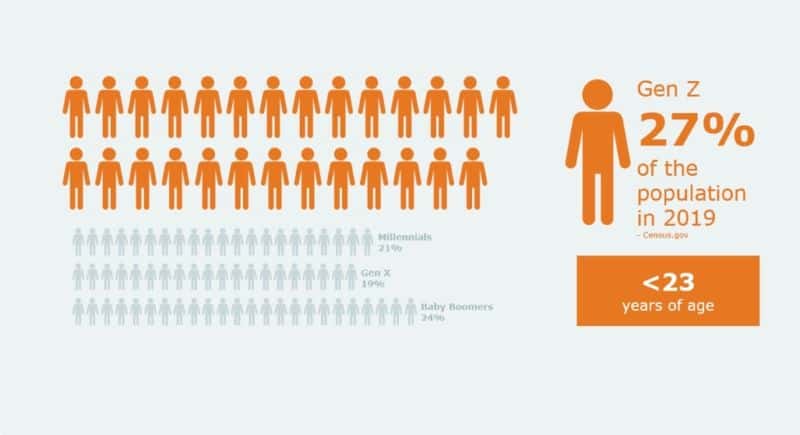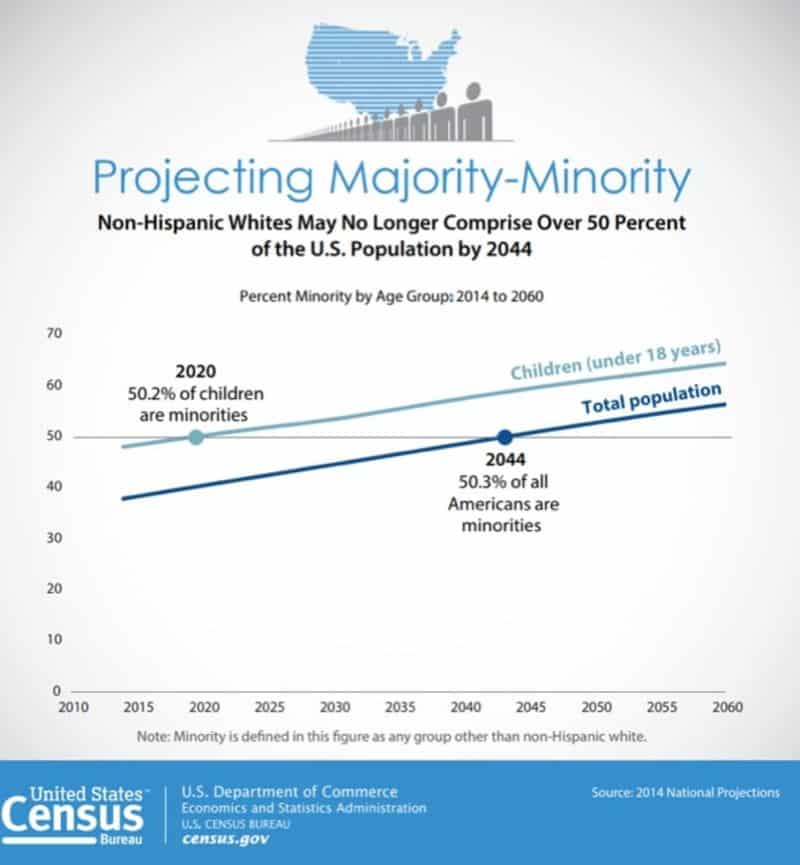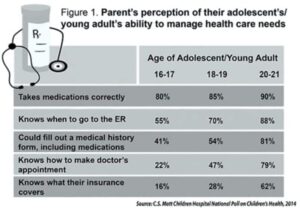What health care marketers need to know about Gen Z

The oldest millennials are nearing their 40s—it’s past time we start thinking about the next generation of health care consumers.
Let’s talk Gen Z.
Also known as: Generation Z, Post-Millennials, the Delta Generation, iGeneration (iGen), Digital Natives, The Pluralist Generation, The Founders, Generation Edge, The Pivotal Generation.
To truly understand our Gen Zers, we need to know the difference between behaviors that are tied to life stage (e.g., most young people feel healthy), and those that are generational values and behaviors—how this group acts based on the unique social and cultural context they grew up in.
Who are Gen Z?
Gen Z is the largest and most diverse generation yet, making up 27% of the U.S. population in 2019.


They were born between 1997 and 2012—which means the first Gen Zers are now 23 years old, entering the workforce and starting to make their own life decisions.
We’re not here to tell you that Gen Z is connected and wants to change the world.
New generations are often disruptors, and they’re likely to be entitled and optimistic for the future—it’s part of being young.
So, what do we know about today’s young adults that sets them apart from the young adults of previous generations?
Definitions of Health
Like most young adults, Gen Z feel carefree and invincible, and take little responsibility for their health. This is typical of the young adult life stage (hey, we’ve all been there).
What’s new is Gen Z’s increased desire to be healthy. This generation’s definition of health centers around holistic wellness and whole-body care. Among these young adults, health is viewed as constantly changing, and something to be improved through good behaviors.
When we spoke with Gen Zers, they consistently expressed that they felt empowered to control and improve all aspects of their own health. From their perspective, personal behaviors like eating well, working out, meditating, sleeping or managing stress are the key to being healthy. In their eyes, being healthy is a matter of having the desire, putting in the work, and staying focused.
“Health is mind, body and soul. Are you eating right? Are you exercising? Health moreso centers around how you are living.” -Gen Z Male, age 21
“To me, health is your lifestyle decisions, based on what you choose to put into your body, as well as your decisions of how you treat your body.” –Gen Z Female, age 19
“I guess health stretches over not just one thing, but spirit, mind and body. They all kind of work together so if one’s not kept up well, then the others will suffer.” -Gen Z Female, age 22
Bridging the gap between the actual self and the aspirational self
These young adults have set high standards for themselves in terms of what it means to live a healthy lifestyle. As a result, they often fall short of their own expectations.
When we spoke to young adults about the state of their health, many discussed intentions to improve their health—but those intentions didn’t always align with their day-to-day behavior. (Who can relate?)
Despite their health awareness, Gen Zers still engage in “unhealthy” behaviors – drinking, eating junk food, etc. – just like all of us did back in college.
“I am health-conscious, but not healthy.” –Gen Z Female, age 19
The contrast between the desire to be healthy and actual behavior creates a gap between the actual self and the aspirational self.
How does this play out?
Members of Gen Z demonstrate an interest in health apps—but our ethnography found that engagement is often short-lived. So either their motivation wanes, or these tools aren’t really helping to close the gap.
Additionally, one in four young adults between age 18 and 24 report zero health care visits in the past 12 months (CDC 2016). This suggests Gen Z may not yet see a clear connection between seeking health care in traditional ways and living a healthy lifestyle.
Did you know that less than half of parents think their 18-year-olds can make a doctor’s appointment?

What does this mean for health care brands?
Take advantage of a generational shift in mindset—engage young adult consumers in efforts to improve their health. Their express desire to be healthy means that there is more opportunity with this generation of young adult consumers than there has been in previous generations.
These young people want to lead healthier lives. It’s up to health care brands to provide young consumers with the tools and resources to bridge this gap.
And don’t forget—they are interested in a holistic approach to health. Limited traditional health care offers might not stick with this bunch.
Curious what health care consumers age 25+ care about? We were too. So we conducted a national segmentation study to find out. Check it out here.
Research Methodology
We partnered with the Cultural Anthropology Graduate program from the University of North Texas to conduct in-home, ethnographic interviews with the goal of understanding Gen Z’s perspectives and behaviors related to health and health care. We focused on two trendsetting markets, Austin, TX and Boulder, CO, where we talked to young adults (aged 18 to 22) who had recently moved away from home for the first time.


